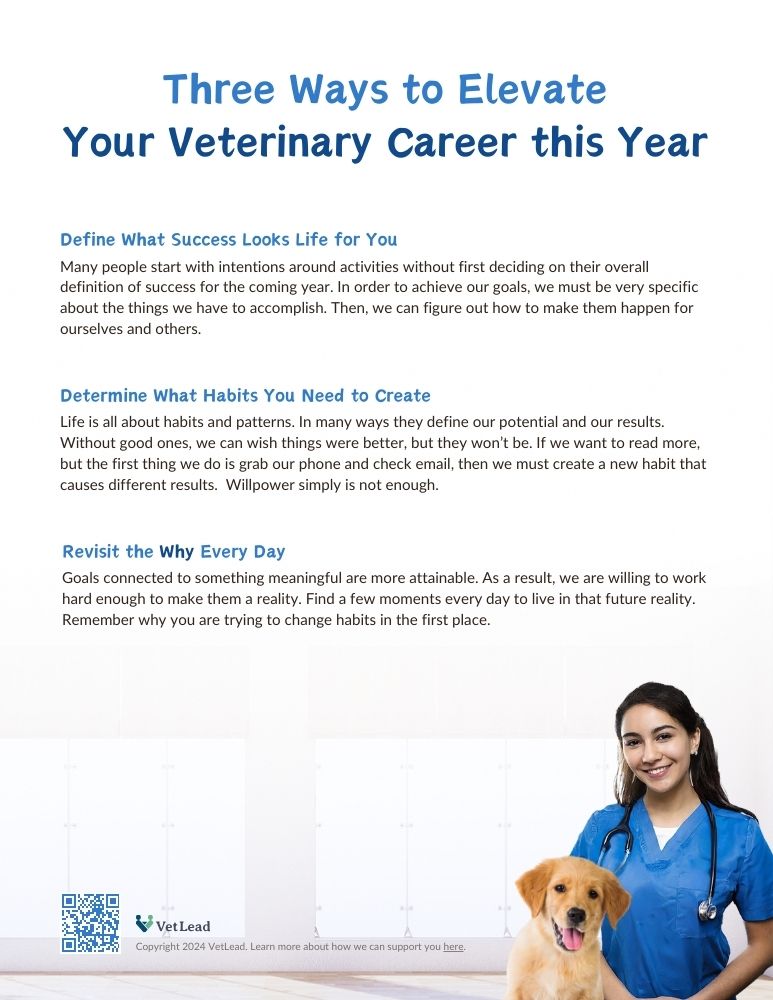Quick Highlights:
- Define Your Success: Clearly articulate what achieving your goals looks like to set a focused direction for the year.
- Establish Positive Habits: Identify and develop new habits that support your objectives, replacing old patterns that may hinder progress.
- Reconnect with Your "Why" Daily: Regularly remind yourself of the underlying reasons for your goals to maintain motivation and drive.
We’ve all seen the statistics on New Year’s Resolutions.
Studies show that nearly half of people set goals for how they’ll improve in the coming year, but sticking to those resolutions is a different story. Research reveals that 88% of people struggle to follow through on their resolutions, even though most start out feeling confident.
The good news? With the right strategies, success is possible—studies suggest that up to 55% of people who set approach-oriented goals achieve them by year’s end. The key is turning promises into practical actions.
Achieve Your Goals with the Right Strategies
The good news is that close to half of resolution-setters feel that they achieved at least part of their goal.
Resolutions are about causing a behavior change. In many ways, our job as a leader is to help ourselves and others make those same behavior changes. Let’s look at some ways we can set ourselves up for success in the new year.
1
Define What Success Looks Like for You
Many people start with intentions around activities without first deciding on their overall definition of success for the coming year. Before making resolutions, ask yourself this:
If at the end of this year, I have my best year ever and exceed my own expectations, what will have happened?
In order to achieve our goals, we must be very specific about the things we have to accomplish. Then, we can figure out how to make them happen for ourselves and others.
2
Determine What Habits You Need to Create
Life is all about habits and patterns. In many ways they define our potential and our results. Without good ones, we can wish things were better, but they won’t be.

If we want to read more, but the first thing we do is grab our phone and check email, then we must create a new habit that causes different results. Willpower simply is not enough. Imagine if we had to consciously think about how to brush our teeth or how to tie our shoes. We would be mentally exhausted by noon.
But, our habits also cause us to roll over and grab the phone first thing in the morning, rather than living our day based on how we think it should look.
How to Change a Behavior
In order to change a behavior, we must create a new trigger that helps us change the habit. Put a magazine or book on the nightstand and leave the phone on the dresser or in the closet.
Remember, it’s impossible to break habits. We can only create new ones to replace the old ones. Habits remain with us forever. We can revert to an old, less desirable habit pretty quickly if we let the new, better habit slide too long.
3
Reconnect with Your "Why" Every Day
People achieve things they deeply care about much more often than things they think they should do, were told to do, or things they do to please someone else or keep their job.
The whole point of defining your success by looking to the end of the coming year is to allow yourself to mentally live in that moment. It’s important to mentally spend time in your future success.
Get Clear About What You Want to Be

Think about the place where you have achieved things you are proud of, grown in ways you care about, and conquered challenges you feel good about. After all, you chose specific goals because they represent who you want to become.
Goals connected to something meaningful are more attainable. As a result, we are willing to work hard enough to make them a reality.
Find a few moments every day to live in that future reality. Remember why you are trying to change habits in the first place. This will help you plan consciously to achieve your goals. It also helps wire your brain to create habits that support the changes you are making.
Achieving Your Potential as a Veterinary Leader
Leadership is about learning how to create change for ourselves to help us achieve more. In turn, it helps us support others to achieve their greatest potential.
Understanding how human behavior change happens and how we can leverage that knowledge more effectively is essential for achieving our full potential and becoming an invaluable leader for others.
The Veterinary Leadership Program
Ready to lead your practice to new heights? The Veterinary Leadership Program equips you with tools to build accountability, drive positive change, and elevate team performance. With expert-led coaching and a flexible format, it’s designed for busy veterinary professionals like you.
Take the next step toward becoming the leader your practice deserves. Discover the Veterinary Leadership Program today.
What are your goals for the next year? Share them with your colleagues in the comments below.

Download this Accompanying PDF Now
Share it with leaders and teams. No email address required.
